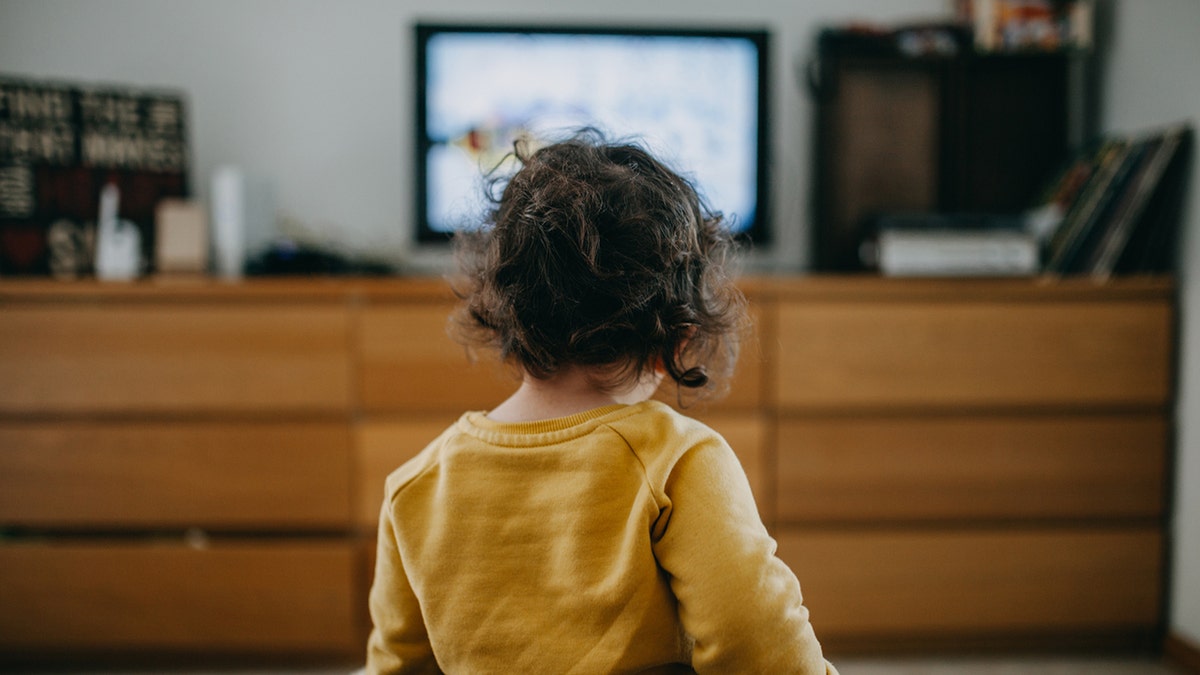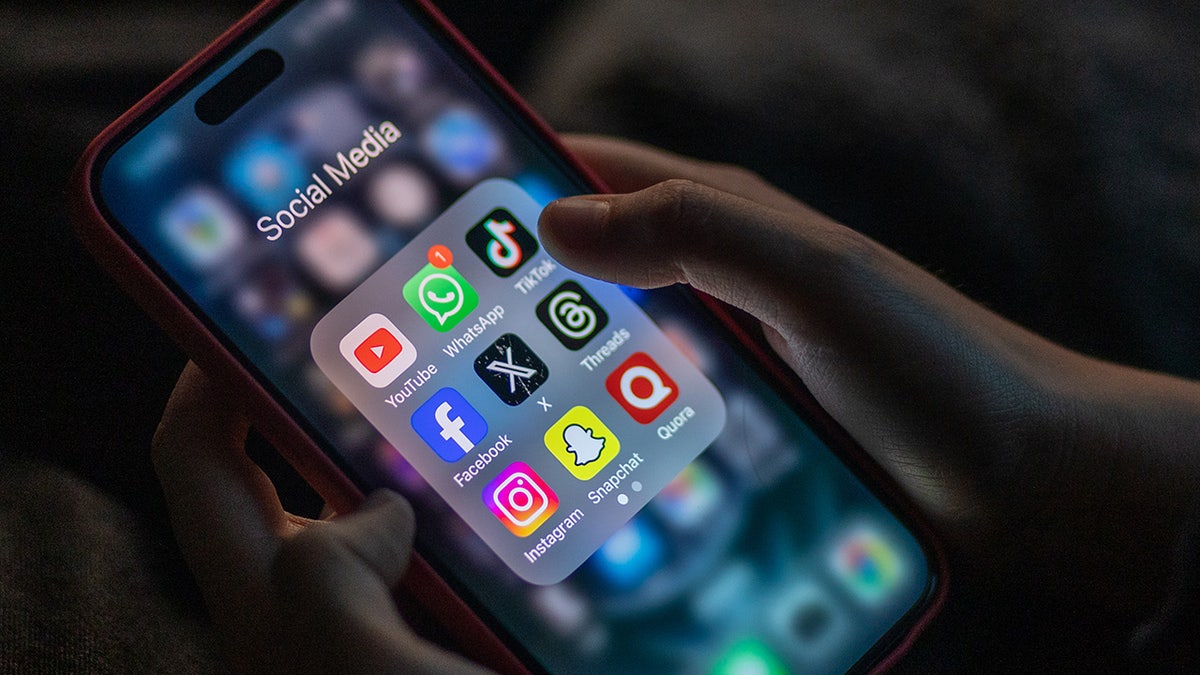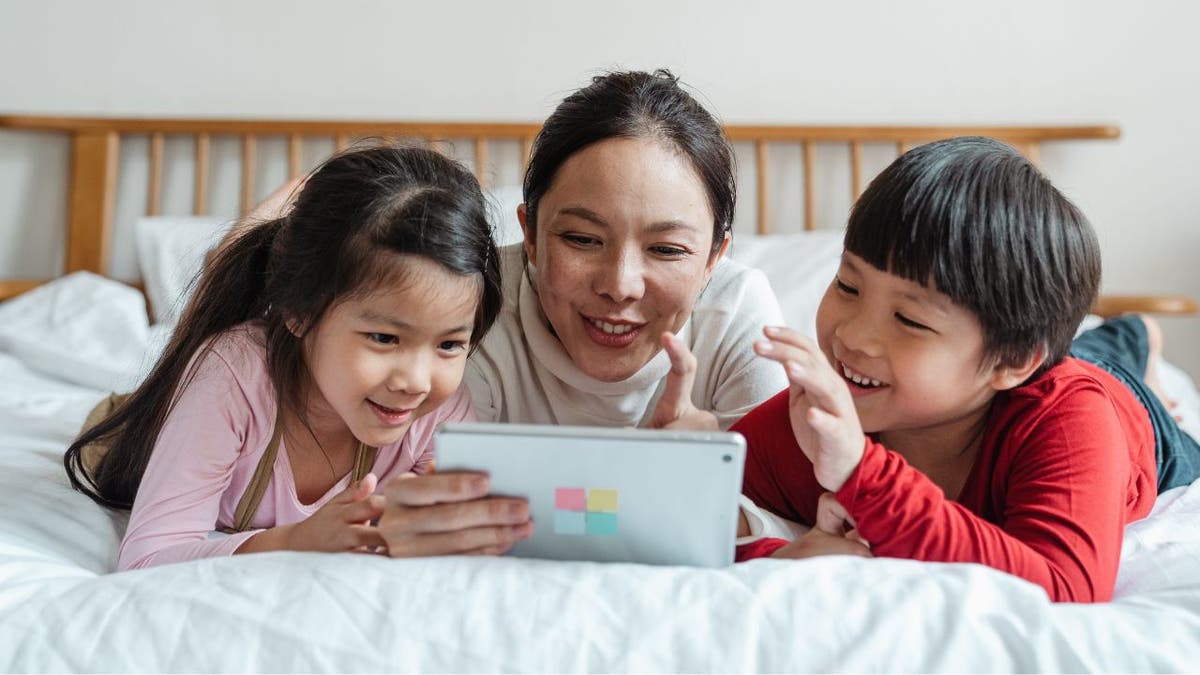When it comes to screen time and kids, less is more.
This is according to a recent study conducted in Denmark and led by Dr. Jesper Schmidt-Persson of the University of Southern Denmark, which looked at the effects of reducing exposure to screen media. youth mental health.
Eighty-nine families with a total of 181 children and adolescents were randomly assigned to one of two groups.
CHILDREN AND SMARTPHONES: HOW MUCH IS TOO YOUNG? EXPERTS REVEAL IMPORTANT RECOMMENDATIONS
The first group had to hand over their smartphones and tablets for a period of two weeks and limit the use of other screen media, such as television and computers, to three hours or less per week, not counting work or school.
The control group had no limitations.
Families who limited their children's exposure to screens saw improvements in their children's mental health, particularly in how they managed their emotions, communicated with peers, and addressed behavioral challenges. (Cyberguy.com)
The average ages of the children ranged from 4 to 17 years, with an average of 8 to 9 years.
Families completed a Strengths and Difficulties Questionnaire (SDQ) at the end of the study period that measured children's psychological symptoms.
A NEW STUDY RELATES THE TIME CHILDREN UNDER 2 YEARS OLD SPEND IN FRONT OF A SCREEN WITH SENSORY DIFFERENCES IN CHILDHOOD
Groups that limited children's exposure to screens saw improvements in Mental health — particularly in how they managed their emotions and communicated with their peers in helpful and considerate ways, as well as a decrease in behavioral difficulties.
The findings were published in JAMA Network Open last month.
Fox News Digital has reached out to the lead investigator for comment.
Risks of excessive screen time for children
In 2023, the U.S. Surgeon General issued an advisory regarding social media use by young people, highlighting mental health concerns.
“There is evidence that children who spend too much time in front of a screen or have excessive access to social media at an early age are more likely to be… depressed or anxious” Dr. Joshua Stein, a child and adolescent psychiatrist and clinical director at PrairieCare in Minnesota, previously told Fox News Digital.

In 2023, the U.S. Surgeon General issued an advisory regarding social media use among young people, highlighting mental health concerns. (Matt Cardy/Getty Images)
The expert cited a 2023 Gallup research study, which noted that teens who were in front of screens for more than five hours a day were 60% more likely to express suicidal thoughts or self-harm.
“These children were 2.8 times more likely to have a negative view of their body and 30 percent more likely to describe 'a lot of sadness,'” added Stein, who was not involved in the Danish research.
STUDY FINDS THAT LIMITING BABIES' SCREEN TIME CAN REDUCE THE RISK OF AUTISM SPECTRUM DISORDER
Access to smartphones and social media increases the risk of cyberbullying and depression. Sleep-related concernsself-harm and body image issues, according to Stein.
“It can also lower self-esteem and put social pressure on people to act outside of their family's morals and beliefs,” she added.
What is a healthy amount of screen time for children?
For children 2 years and older, the American Academy of Pediatrics (AAP) recommends limiting screen time to two hours per day.
Any use of media by children under 2 is discouraged, according to its website.

For children 2 years and older, the American Academy of Pediatrics recommends a screen time limit of two hours per day. (iStock)
The American Academy of Child and Adolescent Psychiatry (AACAP) outlines specific guidelines for each age group on its website.
For babies up to 18 months, it is recommended to limit screen use to video calls with an adult.
CLICK HERE TO GET THE FOX NEWS APP
Between 18 and 24 months of age, the guideline is to use screens only for Educational programming.
For children ages 2 to 5, the AACAP recommends a limit of one hour per weekday and three hours on weekends for any non-educational screen time.

“To be honest and straightforward, the least amount of screen time is healthy for kids,” one expert told Fox News Digital. (Matt Cardy/Getty Images)
It does not specify a time limit for those over 6 years old, but it does recommend encouraging healthy habits and limit screen-based activities.
“To be honest and straightforward, the least amount of screen time is healthy for kids,” Dr. Zeyad Baker, a pediatrician at Baker Health in New Jersey, previously told Fox News Digital.
She admitted that it is more difficult for parents to moderate usage when children need to do online homework, and believes that the quality of screen time comes into play when setting limits.
For more articles on health, visit www.foxnews/health
“I think if you are Spending time in front of the screen as a family “Educationally, or if kids are using screen time to delve into valuable information and topics in a limited capacity, that's very different than constantly watching and absorbing mindless content on the internet,” Baker said.

One expert recommends allowing children access to social media or certain TV channels only on weekends and limiting screen time to academic-related content during the week. (Cyberguy.com)
He recommends allowing children access to social media or certain television channels only on weekends and limiting screen time to academic-related content during the week.
Parents should not make screen time restrictions feel like a punishment, the expert said.
CLICK HERE TO SUBSCRIBE TO OUR HEALTH NEWSLETTER
“Instead, they should encourage other activities, such as going outside to play,” he said.
“That's not only good for physical healthby adding activity and increasing vitamin D levels, but it's also great for your mental health.”












